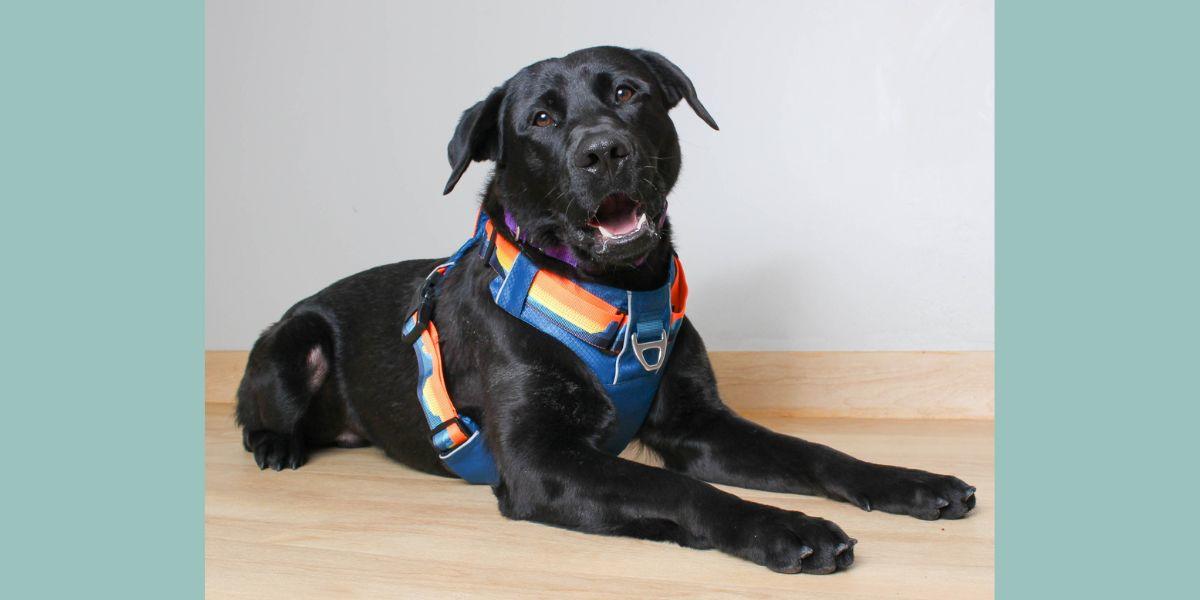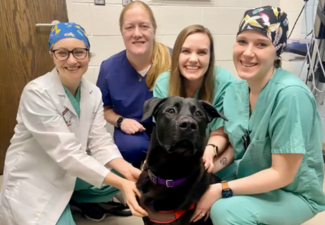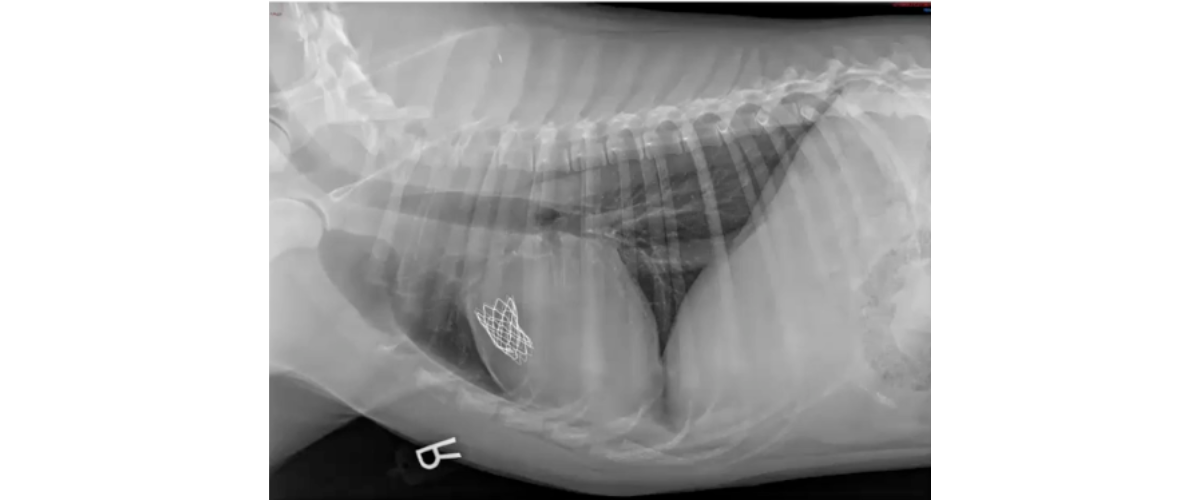A new Melody for Jazz
Ground-breaking valve procedure opens the door for helping dogs with congenital heart conditions

Ground-breaking valve procedure opens the door for helping dogs with congenital heart conditions
Jazz, a rescued black Lab, is one of the first dogs to undergo a cutting-edge cardiology procedure at the Lewis Small Animal Hospital. Photo courtesy of Secondhand Hounds.
Jazz may look like your typical dog on the outside, but on the inside he is very special thanks to a life-saving, cutting-edge procedure performed at the Lewis Small Animal Hospital.
One-year-old Jazz is the recipient of a Melody™ transcatheter pulmonary valve (TPV), more commonly known as an artificial heart valve. TPV therapy is typically used to treat congenital heart conditions in children and adults. Jazz’s procedure in January 2023 represents the first time cardiologists at the Lewis Small Animal Hospital have used this therapy on a canine patient.
It’s a feat very few others have accomplished, according to Dr. Chris Stauthammer, professor at the College of Veterinary Medicine and head of the small animal hospital’s Cardiology Service.
“There’s only one case report out there in the world that I came across,” he says, “and there were a lot of differences in that case compared to this one.”
Jazz was identified as an ideal patient for this therapy due to his medical history. At 8 weeks old, Jazz—along with his mother and siblings—was rescued from a Minnesota reservation and brought to Secondhand Hounds, a nonprofit animal rescue organization in the Twin Cities. A medical exam at a neutering appointment detected a heart murmur, prompting a referral to cardiologists at Lewis Small Animal Hospital for a consultation.

At the consult, Jazz’s heart problems were found to be significant, and he received a diagnosis of pulmonary valve stenosis.
Pulmonary valve stenosis is a birth defect that results in a narrowing of the valve located between the lower right ventricle of the heart and the pulmonary arteries, which connect to the lungs.
“It’s a fairly common condition where the valve is just basically stuck together,” Stauthammer says. That sticking means the heart works harder to pump blood, the toll of which eventually can result in heart failure.
In August 2022, Jazz underwent a balloon valvuloplasty, a minimally invasive surgical procedure during which a catheter is inserted into the heart through the jugular vein. Once the catheter is in place across the valve, a balloon is inflated to create a larger opening, allowing for greater blood flow and decreasing strain on the heart.
Initially, the valvoplasty saw success but, over the next few months, it became clear to Jazz’s care team the procedure was not having the impact they had hoped it would.
In January 2023, Jazz underwent transcatheter pulmonary valve therapy. Similar to the balloon valvuloplasty, the TPV is delivered to the heart via a catheter inserted into a vein. Once the valve is in the right position, balloons are inflated to implant it within the heart.

The procedure was a collaborative effort. Clinicians from the University of Minnesota Medical School’s pediatric service and staff from Medtronic, the manufacturer of the Melody TPV, were consulted on Jazz’s case. Medical School clinicians also were on hand during his procedure to assist in placing the artificial valve, which Medtronic donated to Lewis Small Animal Hospital.
It typically takes six to 12 months for a heart to adapt to the new valve and see significant improvement. In the year since his procedure, Jazz has made progress but will likely need to remain on medication for the remainder of his life—he loves to play and wrestle but his bursts of energy are short due to his heart condition. He lives with a foster family and is currently available for adoption through Secondhand Hounds.
“Jazz is a pretty happy boy and loves to hang out with his humans and go on walks,” says Teri Woolard, neonatal program coordinator for Secondhand Hounds.
With his new artificial heart valve, it’s the care team’s hope that Jazz will continue to enjoy walks and much more for many years to come.